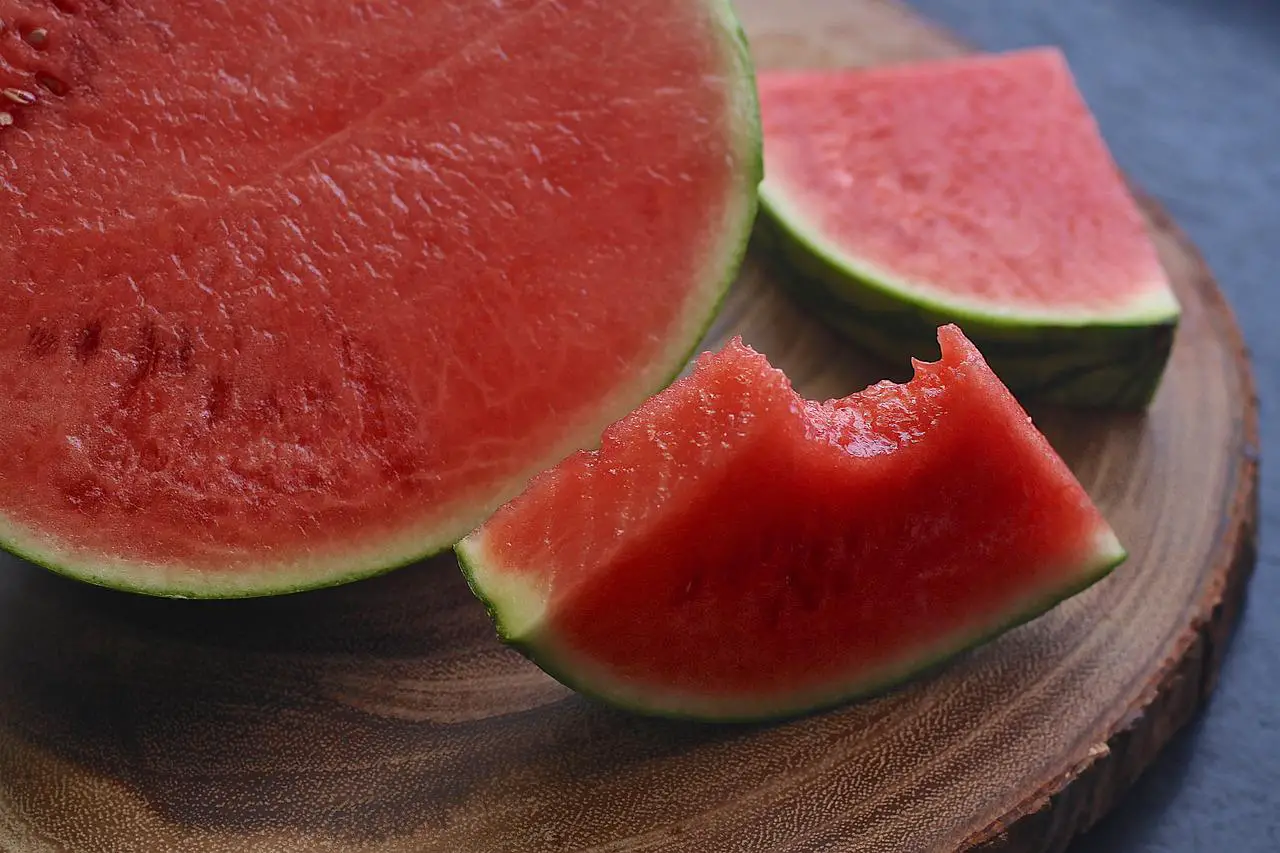Watermelons are 92% water but this fruit is rich with nutrients. With each bite we consume Vitamins like A, C, B6 amino acids and antioxidants. This fruit is fat-free, very low level of sodium and just 40cal/cup. Watermelon also have a high level of lycopene (15-20 mg/2cup). This phytonutrient reacts with the body to trigger healthy reactions. Cancer prevention, bone health and heart health are linked with Lycopene. When the watermelon is fully ripen it gets redder. As the watermelon ripens levels of Lycopene, phenolic antioxidant and beta-carotene increases.
Amino acid citrulline is also found in the watermelon. This amino acid converts to the amino acid arginine and it improves cardiovascular health, blood flow and the circulation.
Nutrition facts for the watermelon are listed below:
2 cups (280gr) of watermelon have:
- Calories 80
- Calories from Fat 0
- Cholesterol 0%
- Sodium 0%
- Total Fat 0%
- Potassium 8%
- Vitamin C 25%
- Iron 4%
- Calcium 2%
- Sugars 20g
- Protein 1%
- Fiber 4%
- Total carbohydrate 7%
Health benefits
Heart health
The high levels of lycopene may lower the risk of heart disease by protecting the cells from damage. The concentration of arginine and citurlline are also good for the heart.
Anti-Inflammatory abilities
In the role of inhibitor for various inflammatory processes Lycopene also work as an antioxidant for neutralizing free radicals. Chronic inflammation can be held down with choline which is contained in watermelons.
Hydration
As we said most of the watermelons is water but this juice is rich of good electrolytes.
Digestion
Your digestive tract can stay healthy because of the fiber in the watermelons.
Skin and hair benefits
You can keep your skin and hair moisturized by adding Vitamin A and Vitamin C to your diet. A cup of watermelon contains ¼ of you daily needs of them.
Muscle soreness
Amino acids from the watermelons can reduce muscle soreness and heart rate.
Cancer prevention
Watermelons like other fruits and vegetables reduce the risk of cancer. Lycopene has been linked to reducing prostate cancer.
HEALTH RISKS
Having too much potassium or lycopene in your body can be experienced if you consume too much of this fruit. Bloating, nausea and diarrhea can be caused by adding more than 30mg of lycopene daily. People with hyperkalemia must not consume over cup of watermelon.
Watermelon Facts
Pumpkins and cucumbers are related to the Watermelons.
Watermelons found their way to china in the 10th century and now China is the biggest producer of this delicious fruit in the world.
Watermelons were brought in Europe 13th century.
In United States and Mexico there are 200-300 varieties of this fruit. Only 50 are popular.
Oklahoma official state vegetable is the watermelon.

